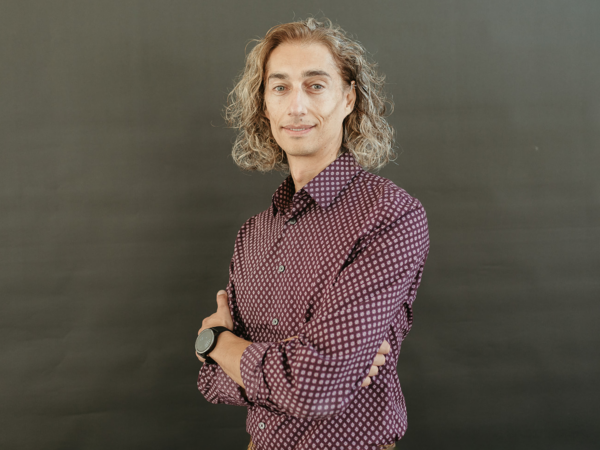
Service-Oriented Architecture with International Influence: Meet Ignazio Marzulli
Ignazio Marzulli studied architecture in Italy, one of the most iconic architectural countries in the world. As an architect, he prioritizes travel and the way it expands his perspective in the design process. And during his decade at KDG, he has applied his international savvy to a design project for a school in Ghana, Africa. Learn more about the way his enjoyment of international travel intersects with his passion for service-oriented architecture.
Where in Italy are you from?
I come from Bari, which is the capital city of the Puglia region on the Adriatic Sea in southern Italy. Bari is a port and university city, and I studied there for my architectural degree.
What do you most appreciate about the Italian Renaissance architects like da Vinci and Brunelleschi, and how does their style influence yours?
During my high school years, their works and notoriety inspired me to enroll in architecture college. What I admire the most about Brunelleschi is that he invented the method of constructing linear perspective which was one of my favorite methods of drawing. Along with Leonardo da Vinci, I think he is one of the greatest architects who with their genius and thinking have inspired the world of art and architecture. And also, they are Italian!!
How is the Polytechnic University of Bari similar or different to architectural programs here in the States?
After high school, I enrolled at the Faculty of Architecture at the Polytechnic University of Bari. The Master’s Degree Course in Architecture is a five-year cycle course. The year after, I obtained my license as an architect. Studying in Italy gives you the opportunity to see with your own eyes the architecture that you are studying in your history textbooks and lectures.
What brought you to the U.S.?
I met my wife in Italy, and then we decided to start our life together here in the U.S.
What experience in architecture did you have between your schooling and KDG?
Between schooling and KDG, I worked in Italy in the architectural and design field. I also spent a brief time in the United Kingdom.
You find the most gratification in the creative process of crafting environments and spaces that evoke emotions in those who experience them. Is there a specific KDG project that encapsulates this?
The Ghana School was service-oriented architecture, a pro bono project for a Christian organization in Ghana, Africa, which included a school building, a gym, a chapel, and a dorm. The goal of this first stage was to come up with and produce content (drawings, renderings, and videos) for the ministry’s fundraising campaign.
As a result, we were able to provide an initial design that satisfied every request and requirement for the educational building architecture without being limited due to financial constraints.
Did you travel to Ghana for the service-oriented architecture project?
Since there was no set location for the project, we did not travel to Ghana; instead, we had the founder of this ministry come to us from Africa so that he could meet with us in person and discuss his plans for the school.
Another exciting aspect was the research phase, during which we learned about how things operate on his continent, how architecture is viewed, how to create, and how to include the project in the overall competition. It was intriguing.
How does your love for nature influence your ability to create?
Nature is the work of the greatest Architect of all. We can just tap into it and try to create.
What is your advice to future architects?
Travel as much as you can, and possibly to a foreign country. Traveling, in my opinion, should be a part of every human being’s life, so that you don’t live in your boxed idea of the world. Each travel experience enriches us and makes our box a little bigger.
As for an architect, since our art is not only dictated by a right or wrong way to do things but by the culture, the environment, and the tradition/root of a nation, traveling allows you to experience these differences that we cannot otherwise entirely get from a book.